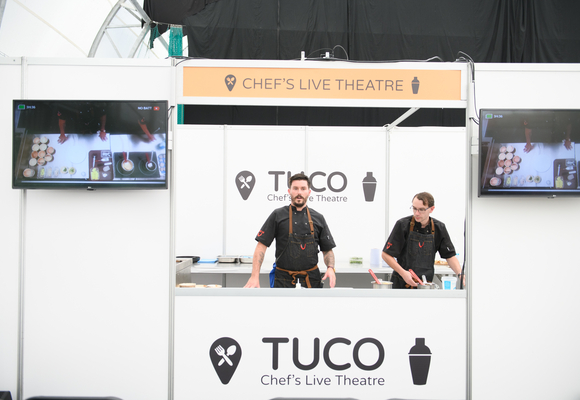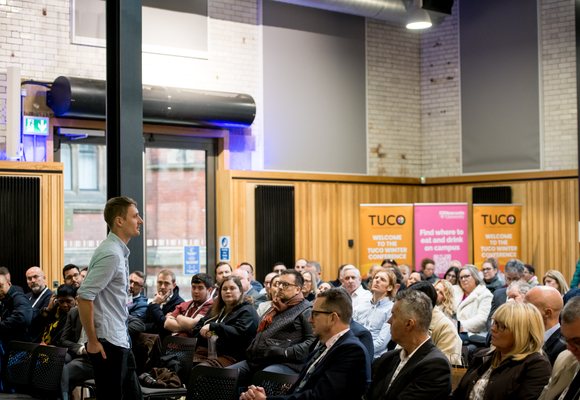
The day started with an overview of Forward Food by Charlie Huson who explained the huge benefits that eating sustainably can have on the environment and on our purse strings. 60% of millennials consume plant-based 'meat' and more people than ever before are buying meat alternatives due to health and sustainability reasons. In recent years, the plant-based foods market has seen strong growth. Alternative proteins and flexitarian diets were named key food trends in 2017 and 2018 by numerous industry commentators including Rabobank, Forbes, Mintel, Innova Market Insights and MarketWatch.

Delegates then turned to Jenny Chandler for an interactive presentation on vegan ingredients. Jenny explored the science behind some foods and discussed what makes them appealing to the human brain. In order to satisfy these needs, Jenny explained the importance that is Umami; "finding that elusive savoury note and creating depth of flavour to satisfy meat-eaters and vegans alike".

For Jenny, it wasn’t about finding meat replacements or feeding a small number of vegan students because of obligation; it was about creating delicious dishes that were healthy and sustainable. Jenny’s ideas supported those of institutions that were concerned about their carbon footprint, who were looking for new and exciting recipes, and whose students were looking to eat well and opt for sustainable food options.
After sampling some incredible ingredients that Jenny had mostly brought from her own kitchen cupboards – and that the TUCO members were now looking forward to introducing in their own institutions – members were invited into the kitchen area to prepare some dishes using these ingredients.

Delegates found that by swapping simple ingredients (such as changing plain flour for chickpea flour, using tempeh in place of meat substitutes, cooking with Umami-rich foods such as seaweed, fruit and veg and fermented foods) they not only could create dishes that were packed with flavour, but were vegan friendly, avoided common allergen ingredients and were super healthy.

It wasn’t only the cooking that Jenny helped TUCO members to consider, but also the way that plant-based meals were promoted. Some delegates found that vegan dishes didn’t sell as well as other dishes on offer, and due to that, less time and money was sometimes spent on creating the vegan dishes. Jenny explained that simple techniques such as the way food is marketed can put off non-vegan customers: "don’t say vegan cottage pie, say Creamy Cottage Garden Pie. Discreate labelling and symbols will be noticed by vegan or vegetarian diners without putting off meat-eaters who can see a ‘vegan’ dish and assume it isn’t for them".
The workshop also looked at key ingredients such as pulses, whole grains, pseudo cereals, plant-based desserts, as well as textures and flavours.
All TUCO members enjoyed a lunch which consisted of sampling the dishes they had helped to create, and went home at the end of the day with a HSI information pack, that included some of Jenny’s recommended recipes and tips and techniques for institutions wanting to take plant-based cooking back into their kitchens.

"I will incorporate what I have learned into my 4 weekly food menu to help make the vegan option more appetising."
– Delegate from Glasgow Clyde College, Cardonald Campus
"The two ladies that presented the course were fantastic, helpful and very informal which makes you comfortable to be around."
– Delegate from Glasgow Clyde College, Cardonald Campus
To enquire about hosting this development day at your own institution, please email [email protected]. (Minimum numbers and appropriate kitchen space required).










